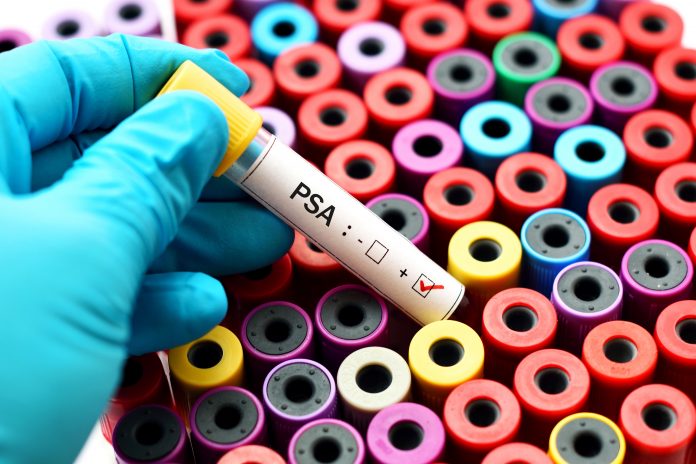
Incorporating genetic factors that influence prostate-specific antigen (PSA) level into prostate cancer screening may help reduce unnecessary invasive testing and improve the detection of aggressive disease, show data presented at the AACR 2022 annual meeting in New Orleans.
Although PSA testing is widely used in prostate cancer diagnosis, population-based PSA screening is discouraged by regulatory bodies such as the US Preventive Services Task Force due to poor sensitivity and specificity.
“We know from previous research that PSA levels are highly heritable (30-40%) – so we know that genetic factors play a role and this is an opportunity to leverage that genetic information to improve a diagnostic test that isn’t perfect, but has a great deal of promise,” said the study’s lead author Linda Kachuri from the University of California San Francisco.
Kachuri and team carried out the largest ever genome-wide association study of PSA levels in men without prostate cancer (n=95,768) using data from the UK Biobank, BioVU, PLCO, and Kaiser Permanente cohorts. Their analysis identified 128 variants that were significantly associated with PSA levels, including 82 that had not previously been discovered.
With this information, the researchers created a PSA genetic score, which calculates the sum of genotypes across the 128 PSA-associated variants weighted by their effect on PSA levels. The score can then be used to create a personalized adjustment factor that corrects PSA values either upward or downward based on each person’s PSA genetic predisposition.
Kachuri told Inside Precision Medicine that although the risk score requires genetic data for all patients, “this could be achieved using genotyping, which is less costly than whole genome sequencing.”
“With increasing interest in integrating genetic risk scores in clinical care, studies are currently underway to assess penitential feasibility issues and figure out how to address them,” she said.
The investigators validated the PSA polygenic score (PGSPSA) in two cancer prevention trials (PCPT and SELECT) involving almost 28,000 participants and found that it explained 7.3% to 8.7% of variation in baseline PSA levels. Notably, the score was not associated with prostate cancer status in either group, confirming that it reflects benign PSA variation.
In addition, the team showed that correcting PSA levels using PGSPSA would have meant that 19.6% of men without prostate cancer could have avoided biopsy referrals at Kaiser Permanente and 15.7% of individuals with a Gleason score below 7 were reclassified as ineligible for biopsy.
Preliminary data also showed that genetically adjusted PSA more accurately predicted aggressive prostate cancer (Gleason ≥7, PSA ≥ 10 ng/mL, stage T3–T4 stage, and/or metastases) than PSA alone, with areas under the receiver operating characteristic curve of 0.72 versus 0.68 in the PCPT cohort, and 0.78 versus 0.74 in SELECT.
“This is the ultimate goal of this line of research – improving the accuracy of PSA screening so that it can be implemented as systematic screening for all men,” said Kachuri.
And although she accepts that “certain screening parameters, such as frequency of testing (or age-specific PSA cut-offs) will have to be tailed appropriately to the target population,” Kachuri hopes “that genetic information can reduce the ambiguity in PSA screening and empower men and their clinicians with more accurate information for making healthcare decisions.”











